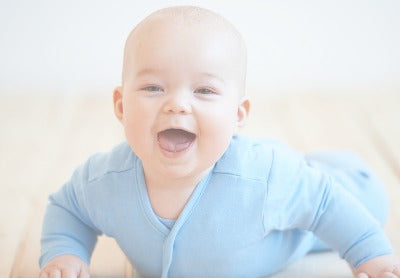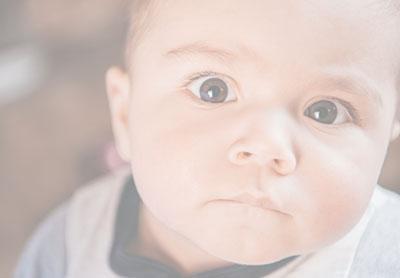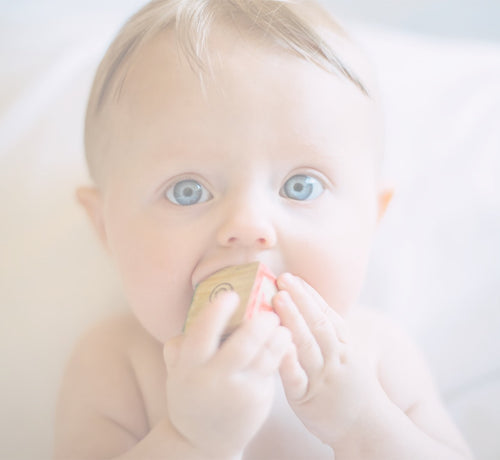Your home should be a place of comfort and safety for your baby. It shouldn’t be filled with triggers that cause their eczema to flare up. If you’ve discovered that your newborn suffers from eczema (also known as atopic dermatitis), the best, and first, step you should take is to apply an emollient product like Mustela’s Stelatopia Emollient Cream, Face Cream, or Balm. Emollients will protect your baby’s sensitive skin and help it repair itself so the red, itchy swelling goes away.
The very next step is to examine your baby’s environment and remove possible allergens that could trigger a flare-up. What exactly are you looking for? And what steps can you take to make your home as eczema-proof as possible? Mustela’s experts are here to help! We’ve created a list of tips that can help transform your home into a “No Eczema Zone.” That way, you and your baby won’t have to worry that the slightest thing could cause an uncomfortable flare-up.
Go For Wood, Tile, Or Linoleum Floors

Carpets, be they wall-to-wall or area rugs, can hold on to dust (one of the major triggers of eczema) no matter how much you vacuum. Hard surfaces like wood, tile, linoleum, or any of the many hybrids are easier to clean and leave fewer places for dust to hide. Plus, hard floors resist spills, diaper malfunctions, spit-ups, and pet accidents much better than most expensive carpets.
Often times, you’re already living in a place before you have your baby. Because of that, you may not have too much control over the type of flooring at home. If you do have carpet and would like a harder surface but don’t have the money, pull up a small corner of the carpet and check underneath. Who knows, there might already be a wood or linoleum floor under there. At the very least, replace the carpeting in your baby’s room (usually a smaller area) with a hard variety so they will have an easier time sleeping.
Keep Curtains And Blinds Dust-Free
Curtains and blinds are notorious dust collectors. You may vacuum your floors every day, but a good deal of the dust in your baby’s environment comes from vertical window dressings. Curtains should be washed at least once a month and should be shaken out every time you vacuum. You can’t wash blinds like you do curtains, but you can dust them (with a wet rag or feather duster) every time you vacuum. Be sure to shake curtains and dust blinds BEFORE you vacuum so you don’t dump more dust onto a clean floor.
Clean The Floors At Least Once A Week
Whether your floors are carpeted or hard-surfaced, you need to keep them clean to avoid triggering an eczema flare-up. Vacuum your floors at least once a week to keep the dust and dirt from aggravating your baby’s skin. And don’t be afraid to clean more than once a week. There’s no such thing as a too-clean environment when it comes to your baby’s eczema.
Regularly Wash Your Baby’s Linens With Hypoallergenic Soap
New babies sleep a lot. But what happens to their sheets and blankets when they’re not in them? They collect dust. That’s why it’s so important to wash their bedding at least once a week. Be sure to use a gentle, hypoallergenic detergent so you don’t cause more problems after the washing.
Use A Hypoallergenic Cover On Your Baby’s Mattress
Because mattresses are almost always covered by sheets, we don’t think of them as accumulating dust. But dust will, indeed, settle in the many nooks and crannies of your baby’s mattress. And mattresses can’t be washed like bedding. That’s why it’s so important to cover your baby’s mattress with a hypoallergenic cover before putting on the sheets and blankets. This cover adds another layer of protection against the dusty cushion underneath and goes a long way toward preventing dust-related eczema flare-ups.
Wash Your Baby With A Gentle Cleanser

Many soaps contain harsh ingredients that can irritate your baby’s sensitive skin and cause a flare-up. Even the water you use during bath time can spark an eczema outbreak. That’s why we recommend adding Mustela’s Stelatopia Bath Oil to the water before bathing your baby. We also suggest using a gentle cleansing cream developed for eczema-prone skin like Mustela’s Stelatopia Cleansing Gel. Both products are safe enough to use from the very first day your baby is born.
Expert tip: After baby's bath, dress them in Mustela's Stelatopia Skin Soothing Pajamas. Made with natural ingredients, these pajamas deliver skin-soothing moisture all night long so your baby can rest well.
Maintain The Right Temperature & Humidity
Some sensitive skin can be triggered by the temperature and humidity in a room. This happens because the high temperature and low humidity cause your baby’s skin to dry out even more than it already is.
We recommend keeping the temperature in your home between 66℉ and 70℉. To help your baby sleep, you can reduce the temperature in their room to 64℉ during the night.
In terms of humidity, we recommend that you keep the moisture level above 30%. The easiest way to do this is with a humidifier. In the absence of a humidifier, you could do the following:
- Put a pan of water on the heating vents.
- Leave the bathroom door open while you take a shower.
- Hang a wet towel in your child’s room.
- Decorate your rooms with green plants.
Limit Your Baby's Contact With Animal Dander
If you have a pet, this could be a difficult one. At the very least, keep your furry friend out of your baby’s room at all times. Limiting contact with animal dander may also mean that your pet needs to stay off the couch or out of the areas where your baby regularly plays.
Don’t Smoke Inside
If you’re a smoker, it’s time to do the deed outside so you don’t cause an eczema flare-up. The chemicals in cigarette smoke are highly toxic and can do a lot of damage to your baby’s skin. You can do everything else on this list and more, but if you smoke inside, you can still cause the red, itchy spots to return. The best solution—for your health and your baby’s—is to quit, but we know this isn’t always possible. At the very least, smoke outside so your baby’s skin doesn’t suffer.
Visit A Doctor

Sometimes, despite your best efforts, your baby continues to break out, or their flare-up won’t go away. At that point, consult a doctor who can test your baby’s skin and tell you exactly what they are allergic too.








